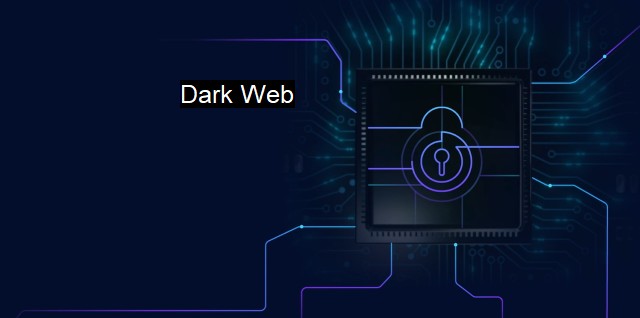What is Dark Web?
Diving Into The Shadows: Exploring The Dark Web and Its Risks for Online Security"
The term "dark web" refers to encrypted online content that is not indexed by conventional search engines. It is part of the internet that cannot be accessed through ordinary browsers or search engines such as Google. This constitutional aspect of the dark web makes it a haven for various kinds of clandestine and usually illicit activities. Remarkably, users can operate on the dark web anonymously, which has significant implications on cybersecurity and antivirus measures.The context in which the dark web fits into cybersecurity is multifaceted. Some users leverage the secrecy provided by the dark web to launch and shield illegal actions, including cybercrime. Crimes conducted over the dark web can range from hacking attempts, data breaches to the sale of illegal substances, and even hiring a hitman. All these activities are largely untraceable and constitute serious threats to cybersecurity.
The traffic of illegal software and tools, including malware, ransomware, and viruses, occurs significantly within the dark web. Sting operations have discovered online marketplaces specializing in selling unique malicious software designed to compromise or tamper with computer systems. The dark web provides the perfect platform for malware discussions and transactions, making it a critical area of concern for cybersecurity, especially in this era of increasing data breaches and attacks.
Products retrieved as a result of illegal cyber activities often end up on the dark web as well. Stolen data, varying from financial data, personal identifiable information to commercial secrets are daily sales on the dark web. Cybercriminals engage in data breaches specifically to get information that they can sell in these marketplaces. This reality makes the dark web the starting point of many cybersecurity breaches and thefts that come into our everyday lives.
While the dark web allows users and activities to lurk in the shadows, it is far from inaccessible to security agencies. The cybersecurity industry is continually evolving approaches to navigate the dark web. One of the ways that cybersecurity experts mitigate the risks of the dark web is by infiltrating it to gather information about looming threats so they can address them before severe damage is done.
Nonetheless, the dark web's inherent design to provide anonymity makes effective antivirus interventions complicated. Traditional cybersecurity measures, like firewalls and secure gateways, are not sufficient to face dark web-enabled threats. Ideally, cybersecurity aiming to address dark web-based threats should combine these traditional defensive measures with more proactive offenses, such as active monitoring, dark web scanning, and employee education on phishing and scamming practices.
Remember, a significant portion of dark web threats emanates from social engineering attacks like phishing, where unsuspecting individuals disclose confidential information to fraudsters. Therefore, comprehensive dark web-wide cybersecurity awareness and user education remain crucial components of a holistic solution.
The dark web, while beneficial for those struggling under oppressive regimes seeking freedom of speech, has become a hotbed for cybercriminal activity. Navigating the dark web's complex landscape requires advanced and proactive measures. More often than not, preemptive vigilance, robust security infrastructure, and continuous user education yield a safer cyber world. The dark web's growth underscores the changing face of cybercrime, calling for a forward-thinking approach to cybersecurity and a relentless pursuit of versatile antivirus methodologies.

Dark Web FAQs
What is the dark web?
The dark web is a part of the internet that is not indexed by search engines and can only be accessed through special software such as Tor. It is often associated with illegal activities, such as the sale of illegal drugs, weapons, and stolen personal information.Is the dark web dangerous?
Yes, the dark web can be dangerous. Many illegal activities take place on the dark web, and users can become victims of scams, fraud, or even violence. It is important to exercise caution and take steps to protect your personal information if you choose to access the dark web.Can antivirus software protect against threats on the dark web?
While antivirus software can help protect your device from malware and other threats, it may not be enough to protect you on the dark web. Many threats on the dark web are designed specifically to evade detection by antivirus software, so it is important to use additional security measures if you choose to access the dark web.How can I stay safe on the dark web?
To stay safe on the dark web, it is important to use a secure and trusted VPN service, which can help protect your identity and encrypt your internet connection. It is also important to use strong passwords, avoid clicking on suspicious links, and never share personal information. Additionally, it is a good idea to limit your activity on the dark web and avoid engaging in any illegal activities.| | A | | | B | | | C | | | D | | | E | | | F | | | G | | | H | | | I | | | J | | | K | | | L | | | M | |
| | N | | | O | | | P | | | Q | | | R | | | S | | | T | | | U | | | V | | | W | | | X | | | Y | | | Z | |
| | 1 | | | 2 | | | 3 | | | 4 | | | 7 | | | 8 | | |||||||